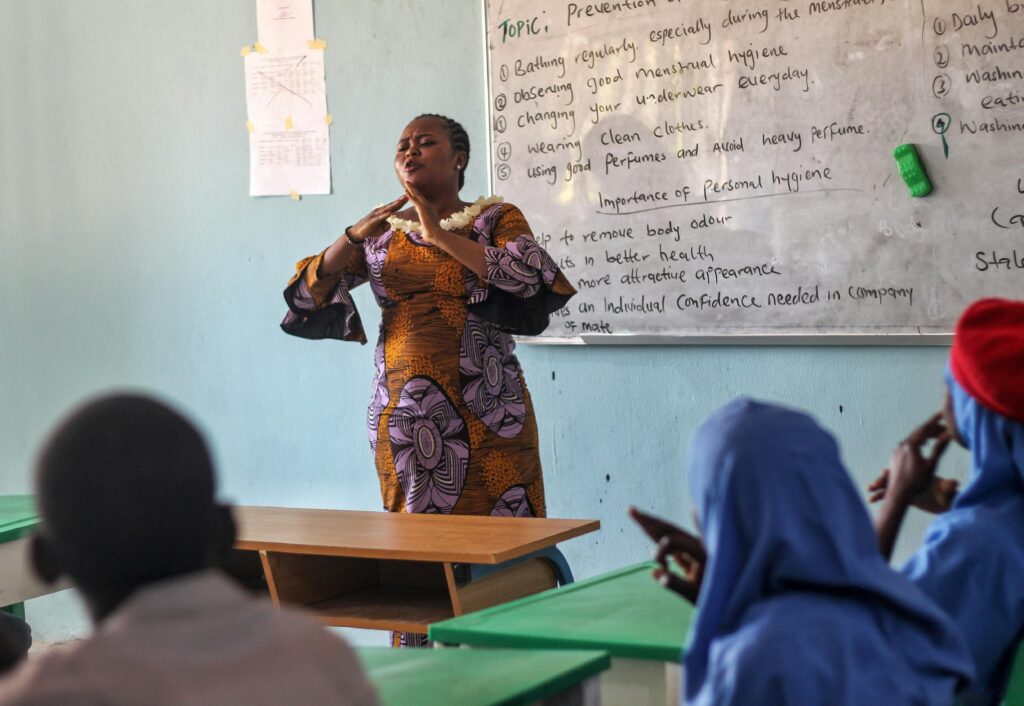
African education and employment are deeply intertwined, with education widely seen as a key tool for empowerment and national development. Across the continent, expanding access to education has been a top priority, with hopes that it would translate into better job opportunities and economic growth. However, as globalization and technology reshape labor markets, a crucial question arises: Are African schools and universities truly preparing students for the demands of the modern workforce?
The Expansion of African Education Systems
Over the past two decades, access to education in Africa has improved significantly. According to UNESCO, the net enrollment ratio in Sub-Saharan Africa rose from 84% in 1999 to an estimated 93% by 2015, reflecting improved access for primary school-aged children. Meanwhile, gross enrollment — which includes overage and underage students — increased from 59% in 1999 to over 80% by 2020, highlighting broad gains in participation.
In Rwanda, for example, collaboration with development partners such as the World Bank has led to the construction of thousands of new classrooms and implementation of programs like Smart Classrooms, which integrate ICT into primary and secondary education. The Basic Education program, along with school feeding initiatives, have improved both attendance and retention—especially for students from low-income families.
Countries such as Kenya, Uganda, and Tanzania have introduced similar programs. However, challenges with implementation, funding consistency, and quality assurance persist across the region.
Higher Education Growth vs. Employment Outcomes
Tertiary education has also expanded rapidly. For example, Rwanda’s higher education landscape grew from a single national university to more than 30 universities in under two decades. Similar developments have occurred in Nigeria, South Africa, Egypt, Tunisia, and Morocco, where both public and private institutions have emerged to meet rising demand.
According to the African Development Bank and Science Africa, university enrollment across the continent has more than doubled since 2000. This reflects national efforts to build human capital and strengthen competitiveness in the global economy. Yet, the disconnect between education and employment outcomes remains a pressing concern.
Youth Unemployment: A Persistent Challenge
Despite these educational gains, youth unemployment is on the rise. A 2023 report from the International Labour Organization (ILO) found that youth unemployment in Sub-Saharan Africa is over 11%, with much higher rates in urban centers. Many university graduates struggle to find work, leading to frustration and, in some countries, public protests.
In Nigeria, for example, over 40% of university graduates were unemployed as of 2022, according to data from Nigeria’s National Bureau of Statistics. This situation points to a structural problem in the relationship between education systems and labor market needs.
High school graduates face similar challenges. Without access to technical or vocational education, they leave school with limited employable skills. Many are forced to pursue university degrees simply to remain competitive—further intensifying the graduate employment crisis and increasing underemployment.
Why the African Skills Gap Persists
A key reason for this misalignment is that university curricula are often developed in isolation from labor market realities. A 2022 report by the World Economic Forum noted that fewer than 40% of African employers believe graduates are adequately prepared for work.
Educational institutions rarely consult employers, industry leaders, or civil society when designing programs. As a result, many students graduate with strong academic knowledge but lack the practical skills demanded by today’s industries.
In Rwanda, for instance, the University of Rwanda introduced a degree in clinical psychology, aiming to address mental health needs. However, many graduates were unable to find work in either the health or education sectors. They often had to return to school to pursue teaching credentials or health-related diplomas—delaying their entry into the workforce and undermining the value of their original degree.
Bridging the Skills Gap in African Education and Employment
To prepare students for real-world challenges, African governments and education planners must rethink how academic programs are designed and delivered. Effective solutions include:
- Involving youth in policy-making to ensure that their aspirations and challenges are acknowledged
- Partnering with employers and industry to align academic content with job requirements
- Engaging civil society to advocate for marginalized youth and ensure inclusive policy design
One promising strategy is to expand industrial attachment programs, internships, and experiential learning. These allow students to build job-ready skills while still in school. Kenya’s Competency-Based Curriculum (CBC) is one example of a system that aims to blend academic and practical learning from an early age.
The Role of Resilience and Entrepreneurial Thinking
While governments and institutions must adapt, students themselves have a crucial role to play. Earning a degree is not a guarantee of employment. Like in the classroom—where not all students score the highest marks—success in the job market requires competition, consistency, and self-motivation.
Graduates should embrace resilience: the ability to adapt to uncertainty and continue striving despite setbacks. This mindset is essential not just for job-seeking, but also for creating opportunities through entrepreneurship. The African Union’s Agenda 2063 emphasizes entrepreneurship as a pillar of youth empowerment, encouraging innovation and self-reliance.
By combining formal education with entrepreneurial thinking, young Africans can turn their knowledge into income-generating activities—even in contexts where formal employment is scarce.
Conclusion: Toward a Sustainable Model for African Education and Employment
To truly prepare students for life after school, African education systems must evolve. That means:
- Designing evidence-based education policies that reflect labor market realities
- Collaborating with youth, employers, and civil society in shaping curricula and strategies
- Encouraging students to pursue both employment and self-employment as valid career paths
- Promoting resilience, adaptability, and lifelong learning
The promise of education lies not just in the classroom, but in its ability to empower young people to navigate and shape the future. With the right reforms and inclusive strategies, Africa’s schools and universities can become true engines of opportunity.
Related Posts:
